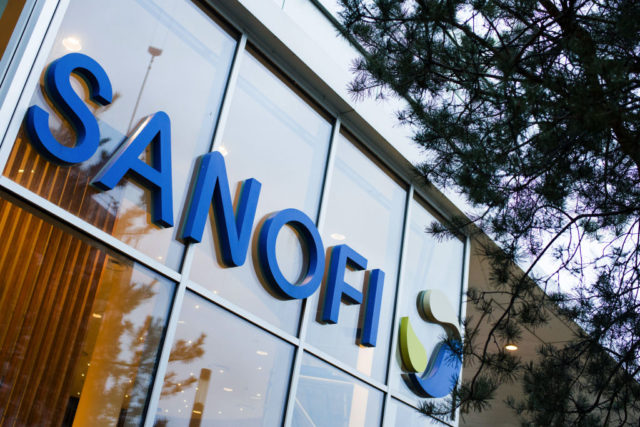
Sanofi’s scope in genetic medicines is expanding to muscle disorders through a new alliance with a preclinical biotech startup. The pharmaceutical giant is also bringing a key piece for the RNA therapy that partners will develop together for a particular form of muscular dystrophy.
Under the terms of the agreement announced Tuesday, Sanofi will collaborate with miRecule, a Gaithersburg, Maryland-based startup that develops RNA therapies that target and fix a genetic abnormality that causes disease. The alliance covers miRecule’s drug candidate for facioscapulohumeral muscular dystrophy (FSHD), the second most common type of muscular dystrophy. The disease has no FDA-approved therapies.
MiRecule’s technology identifies targets for RNA drugs by analyzing gene sequencing profiles and clinical outcomes from hundreds of patients. Those targets are screened to find the best RNA therapeutic for a subset of patients. The therapies use an antibody to direct RNA to target tissues. The combination of the molecules creates what miRecule calls antibody-RNA conjugates, or ARCs.
FSHD is caused by abnormal expression of the DUX4 protein, which leads to progressive muscle weakness that primarily affects the face, shoulders, and upper arms. The miRecule FSHD program, code-named MC-DX4, is designed to use RNA to eliminate the expression of the DUX4 gene, thereby addressing the underlying cause of FSHD in muscle tissue. The new alliance will pair miRecule’s FSHD drug candidate with an antibody from Sanofi’s proprietary antibody platform.
The agreement gives Sanofi an exclusive license to miRecule’s FSHD therapy. The two companies will collaborate on research through the selection of a lead therapeutic candidate. After that, Sanofi takes over responsibility for the preclinical work to bring the therapy into human testing and subsequent clinical development. Sanofi will also handle commercialization of the product if it secures regulatory approval.
MiRecule is in line to receive an upfront payment and near-term milestone payments that could top $30 million combined, according to the agreement. Milestone payments could bring the biotech nearly $400 million, plus royalties from sales of an approved product.
“We look forward to working with miRecule to bring together our two groundbreaking technologies synergizing in a best-in-class therapy designed to suppress the underlying cause of FSHD. We hope that this will enable patients to live a life free from the debilitating symptoms of the disorder,” Pablo Sardi, Sanofi’s global head of rare and neurologic diseases research said in a statement. “We are excited to embark on this collaboration with miRecule as we work together to bring hope to the FSHD community.”
Sanofi’s RNA moves in the past year have focused mainly on messenger RNA. Last year, the pharmaceutical giant paid formed a new mRNA vaccines unit to expand applications of mRNA beyond Covid-19 vaccines. Months later, Sanofi paid $3.2 billion to acquire mRNA biotech Translate Bio. The $160 million acquisition of startup Tidal Therapeutics brought technology for developing mRNA vaccines for cancer. Sanofi also has an RNA interference therapy in its pipeline through an alliance with Alnylam Pharmaceuticals. That partnered therapeutic candidate, fitusiran, is being developed as a treatment for hemophilia A and B.
MiRecule started in 2019, supported by the patient and academic communities as well as a grant from the National Institute of Neurological Disorders and Stroke. In addition to muscular dystrophy, miRecule is applying its technology to cancer. The biotech’s most advanced cancer program, MC-30, is in preclinical development for head and neck cancer. That RNA therapy is designed to correct a genetic mutation that leads to resistance to currently available cancer therapies.
Photo: Nathan Laine/Bloomberg, via Getty Images








